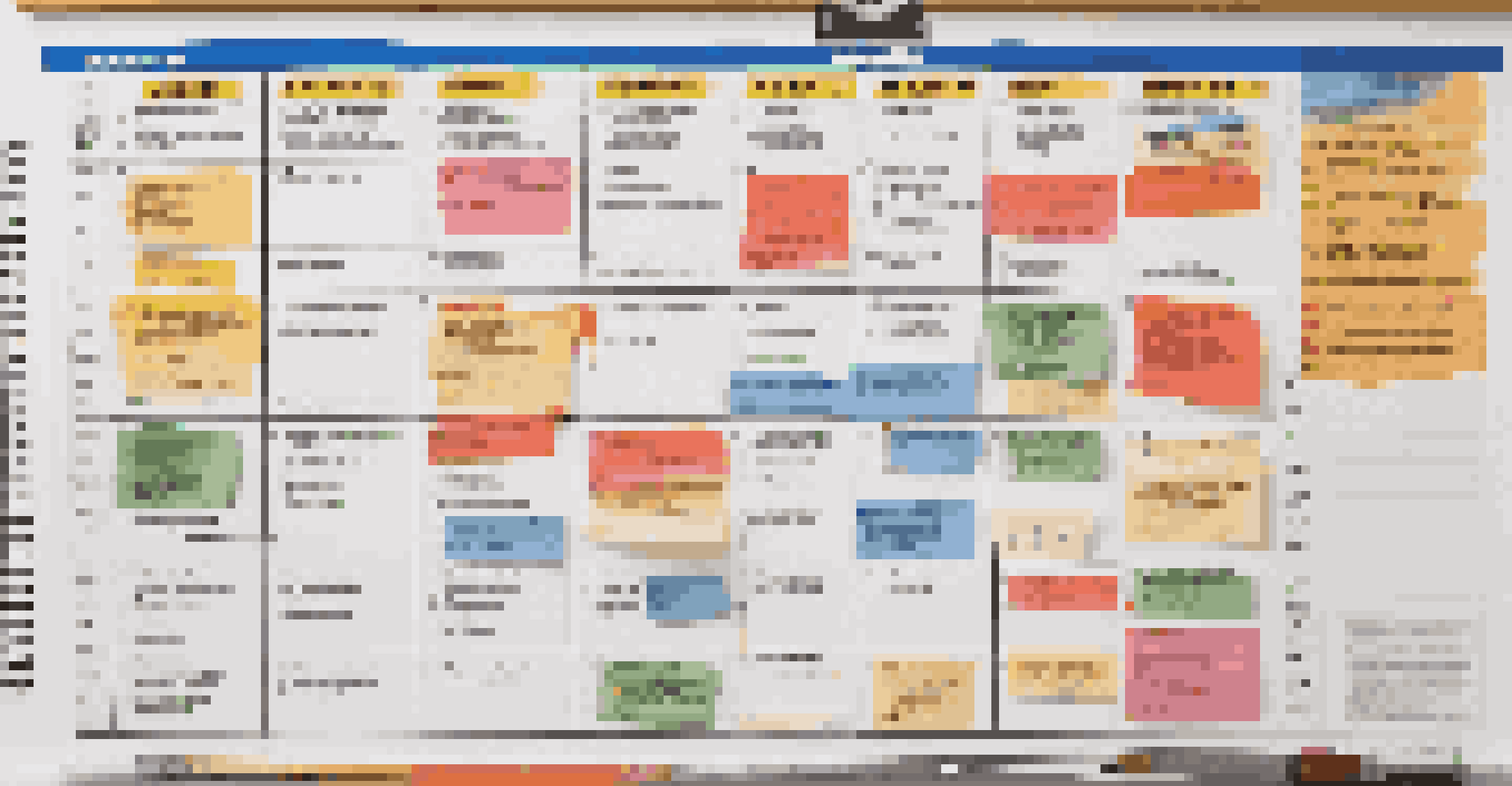The Importance of Regular Maintenance for New Landlords

Understanding Regular Maintenance: Why It Matters
Regular maintenance is the backbone of a successful rental property. For new landlords, it’s not just about collecting rent; it’s about ensuring the property remains safe and functional for tenants. A well-maintained property fosters a positive living environment, ultimately leading to happier tenants and longer lease durations.
An ounce of prevention is worth a pound of cure.
Think of your rental property like a car. Just as you wouldn’t let your car go without oil changes or tire rotations, your property requires consistent care. Regular check-ups can catch small issues before they escalate into costly repairs, saving you time and money in the long run.
Moreover, maintaining your property shows tenants that you care about their living experience. This can significantly enhance your reputation as a landlord, making it easier to attract quality tenants in the future.
Key Areas of Focus for Property Maintenance
As a new landlord, it's essential to identify key areas that require regular upkeep. This includes plumbing, electrical systems, HVAC, and the exterior of the property. Each of these elements plays a critical role in the comfort and safety of your tenants.

For example, neglecting plumbing issues can lead to leaks that cause water damage, mold, and a host of other problems. By regularly inspecting these areas, you can prevent small issues from turning into major headaches.
Regular Maintenance is Essential
Consistent upkeep of your rental property not only ensures safety and comfort for tenants but also enhances your reputation as a landlord.
Additionally, don't forget about the exterior, including landscaping and walkways. A well-kept property not only looks inviting but also minimizes safety hazards, showing tenants that you take pride in your investment.
Setting a Maintenance Schedule: How to Stay Organized
Creating a maintenance schedule can help you stay on top of necessary tasks. Consider implementing a seasonal checklist that outlines what needs to be done at various times of the year. This approach helps ensure that nothing falls through the cracks.
The bitterness of poor quality remains long after the sweetness of low price is forgotten.
For instance, you might check the heating system in the fall, inspect roofing in the spring, and clean gutters before winter. By breaking these tasks down into manageable chunks, you can avoid the stress of last-minute repairs.
Using tools like calendar reminders or property management software can also streamline your maintenance planning. This way, you won’t be overwhelmed, and your property will always be in top shape.
The Cost of Neglecting Maintenance
Neglecting maintenance can lead to significant costs that can undermine your rental income. Whether it’s fixing a leaky roof or replacing an entire HVAC system, unplanned repairs can quickly eat into your profits. By investing in regular maintenance, you can avoid these surprise expenses.
Consider the long-term impact of letting issues go unresolved. A small plumbing leak, if left unchecked, can lead to extensive water damage and mold remediation costs, which are far more expensive than routine upkeep.
Neglecting Maintenance Costs You
Ignoring maintenance can lead to significant repair costs that undermine your rental income and overall property value.
In essence, regular maintenance is not just an expense; it’s a wise investment in the longevity and profitability of your property.
Building Relationships with Tenants Through Maintenance
Regular maintenance not only protects your property but also helps build lasting relationships with your tenants. When tenants see that you are proactive about repairs and upkeep, they are more likely to feel valued and respected. This can lead to higher tenant satisfaction.
Good communication is key here. Make sure your tenants know how to report maintenance issues and respond promptly to their requests. This responsiveness can significantly enhance their overall experience and encourage them to renew their lease.
Moreover, happy tenants are more likely to recommend your property to friends or family, which can lead to a lower vacancy rate in the future.
Legal Obligations: Understanding Your Responsibilities
As a landlord, you have legal obligations to maintain safe and habitable living conditions for your tenants. This can vary by location, but generally, it includes ensuring that essential services like heating, plumbing, and electrical systems are in working order.
Failure to meet these obligations can lead to legal repercussions, including tenant lawsuits or fines. It’s crucial to familiarize yourself with local landlord-tenant laws to ensure compliance.
Build Tenant Relationships Through Care
Proactive maintenance fosters trust and satisfaction among tenants, increasing the likelihood of lease renewals and positive referrals.
Staying informed not only protects you legally but also enhances your reputation as a responsible landlord who prioritizes tenant welfare.
Tips for Effective Property Maintenance Management
Managing property maintenance can feel overwhelming, especially for new landlords. However, implementing a few strategies can simplify the process. Start by keeping a detailed record of maintenance tasks, including dates, costs, and repairs performed.
Consider hiring a trusted property management company if you find the workload too much. These professionals can handle everything from routine checks to emergency repairs, giving you peace of mind.

Ultimately, whether you choose to manage maintenance yourself or hire help, staying organized and proactive is key to ensuring your property remains a safe and inviting place for tenants.